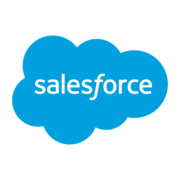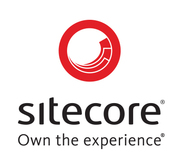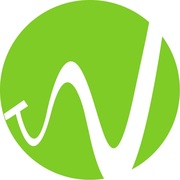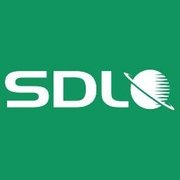Content Management Systems (CMS)
Content Management Systems (CMS) Overview
Top Rated Content Management Products

These products won a Top Rated award for having excellent customer satisfaction ratings. The list is based purely on reviews; there is no paid placement, and analyst opinions do not influence the rankings. Read more about the Top Rated criteria.
Content Management Systems (CMS) TrustMap
TrustMaps are two-dimensional charts that compare products based on trScore and research frequency by prospective buyers. Products must have 10 or more ratings to appear on this TrustMap.
Content Management Products
(1-25 of 140) Sorted by Most Reviews

Microsoft's SharePoint is an Intranet solution that enables users to share and manage content, knowledge, and applications to empower teamwork, quickly find information, and collaborate across the organization.

Progress Sitefinity is a content management and customer analytics platform. It supports content management, tailored marketing, multi-channel management, and ecommerce sites.
Key Features
- Role-based user permissions (164)90%9.0
- Page templates (165)90%9.0
- Admin section (169)85%8.5

WordPress
Wordpress is an open-source publishing platform popular with bloggers, and a content management system, known for its simplicity and modifiability. Websites may host their own blogging communities, controlling and moderating content from a single dashboard.
Key Features
- Library of website themes (125)89%8.9
- Mobile optimization / responsive design (124)86%8.6
- Admin section (126)83%8.3

Wix is a free, hosted website builder, designed to be user-friendly and customizable without requiring coding from the user. It is well-known for its eCommerce solution, which allows users to build an online store.
Key Features
- Mobile optimization / responsive design (91)78%7.8
- Page templates (91)75%7.5
- Library of website themes (88)74%7.4

Magnolia
Founded in 1997 with a vision to create the first truly open content management system, Magnolia is presented as the fastest way to launch digital experiences. With a mission to help clients move fast and stay flexible, and boasting users among brands like Atlassian and The New York…
Key Features
- Role-based user permissions (79)95%9.5
- Publishing workflow (82)92%9.2
- Page templates (81)90%9.0

Squarespace is a CMS platform that allows users to create a DIY blog, eCommerce store, and/or portfolio (visual art or music). Some Squarespace website and shop templates are industry or use case-specific, such as menu builders for restaurant sites.
Key Features
- Page templates (85)89%8.9
- Admin section (84)85%8.5
- Library of website themes (83)82%8.2

Drupal is a free, open-source content management system written in PHP that competes primarily with Joomla and Plone. The standard release of Drupal, known as Drupal core, contains basic features such as account and menu management, RSS feeds, page layout customization, and system…
Key Features
- Page templates (67)81%8.1
- Admin section (68)78%7.8
- Publishing workflow (67)78%7.8

Joomla
Joomla! is a free and open source content management system used to publish web content. Included features are page caching, RSS feeds, printable versions of pages, news flashes, blogs, polls, a search function, and support for language internationalization.
Key Features
- Page templates (47)79%7.9
- Availability / breadth of extensions (47)77%7.7
- WYSIWYG editor (48)75%7.5

ExpressionEngine is a content management system from EllisLab in 2002, a successor to pMachine Pro, a blogging system, which is written in object-oriented PHP and uses MySQL for data storage. ExpressionEngine is their flagship Content Delivery Platform.
Key Features
- Role-based user permissions (32)99%9.9
- Admin section (31)99%9.9
- Code quality / cleanliness (31)91%9.1

Optimizely Content Cloud (formerly Episerver Content Cloud)
The Optimizely Content Cloud (formerly Episerver Content Cloud CMS, integrating and superseding features from the former Ektron CMS) is a web content management system and digital marketing suite. It enables editors to drag-and-drop content to quickly create new digital experiences…
Key Features
- Role-based user permissions (35)84%8.4
- WYSIWYG editor (35)74%7.4
- Admin section (36)69%6.9

Concrete CMS
Concrete CMS (formerly Concrete5) is a free and open source, PHP built content management system for content on the web and also for intranets. It is optimized to support the creation of online magazines and newspapers.
Key Features
- Admin section (37)87%8.7
- Page templates (37)83%8.3
- WYSIWYG editor (39)80%8.0

Adobe Experience Manager
Adobe Experience Manager is a combined web content management system and digital asset management system. The combined applications of Adobe Experience Manager Sites and Adobe Experience Manager Assets is offered by the vendor as an end-to-end solution for managing and delivering…
Key Features
- Page templates (37)72%7.2
- Role-based user permissions (37)71%7.1
- Bulk management (36)67%6.7

Cascade Server is a content management system from Hannon Hill. It is designed for decentralized web teams amd can be installed or hosted by Hannon Hill in the cloud. It includes access to a web marketing tool to allow content contributors to promote, measure, and optimize their…
Key Features
- Role-based user permissions (19)80%8.0
- Admin section (19)80%8.0
- WYSIWYG editor (19)61%6.1

Weebly, now from Square, is a basic content management system with blogging and eCommerce features. It can be utilized for building standard websites or specialized webpages for online stores.
Key Features
- Mobile optimization / responsive design (40)93%9.3
- Page templates (41)42%4.2
- Library of website themes (41)42%4.2

Salesforce CMS
Salesforce CMS is a hybrid CMS allowing users to author content once and deliver it anywhere, in or out of Salesforce. In CMS Workspaces, users create content, define content access, and define channels so they can share content and limit access to appropriate contributors. For an…
Key Features
- Role-based user permissions (32)84%8.4
- API (31)79%7.9
- Code quality / cleanliness (27)74%7.4

Acquia Digital Experience Platform
The Acquia Digital Experience Platform is an "Open DXP" with its two core pillars being content and data. Built on top of one of the largest open-source content management systems, Drupal, it aims to provide the flexibility and interoperability a modern organization needs. With…

Sitecore Experience Manager is an enterprise-grade CMS competing with Oracle WebCenter, IBM Web Content Manager and Adobe. It presents a fairly wide and comprehensive swath of inbuilt features. In Sitecore WCM editing takes place from within the page with its inline editor, allowing…
Key Features
- Role-based user permissions (19)88%8.8
- Code quality / cleanliness (18)86%8.6
- WYSIWYG editor (19)77%7.7

Elementor is a Wordpress page builder and creative toolkit from the company of the same name in Israel.
Key Features
- WYSIWYG editor (24)88%8.8
- Page templates (26)80%8.0
- Mobile optimization / responsive design (26)80%8.0

Crownpeak DXM
CrownPeak is one of the best-known providers of an Enterprise-level CMS delivered via the cloud. It is used by many large agencies as well as companies in the financial services, healthcare, manufacturing and non-profit sectors.
Key Features
- Publishing workflow (21)77%7.7
- WYSIWYG editor (20)73%7.3
- Page templates (21)72%7.2

Adobe Business Catalyst is an all-in-one cloud-hosted system for building and managing web content and online stores. It has a built-in CRM framework in addition to sales, service, and marketing features including eCommerce and Email Marketing tools. It is scheduled to be shutdown…
Key Features
- Dynamic content (15)90%9.0
- Dashboards (15)80%8.0
- Email deliverability reporting (15)79%7.9

WebWave
WebWave — a unique alternative for agencies and freelancers for creating custom websites for clients with the support of CMS. Using CMS with no sacrifices WebWave is a CMS platform that gives a designer precision up to 1 px in every single detail just like in more sophisticated…
Key Features
- WYSIWYG editor (17)93%9.3
- Admin section (17)88%8.8
- Page templates (17)81%8.1
Learn More About Content Management Systems (CMS)
What is a Content Management System?
Users can rely on CMS software to run any of these types of sites:
Blogs
News sites
Ecommerce sites
Corporate websites
Intranets
CMS Features & Capabilities
The most common features and capabilities of a good content management system include:
WYSIWYG (what-you-see-is-what-you-get) editor
Page templates
Library of website themes
Content versioning and archiving
Mobile optimization & responsive design
Publishing workflow
Form generation
Content scheduling
Asset management (images, articles, etc.)
Page caching (or other features to speed delivery of content to the site)
SEO support
Tools to tag content and create a taxonomy
Browser compatibility
Bulk management
E-commerce functionality (i.e., catalog, shopping cart, payment processing)
Community management (i.e., commenting, profiles)
Localization / regionalization with multi-lingual content
Other personalization options
User roles and permissions
API
Analytics tools
Import/export content
Pricing Information
There are some free content management systems that are open source. (However, these are usually less user-friendly for authors. Open source content management systems will likely require more HTML skills to format content and help from developers to deploy/update content.)
For lower-end options, prices can start as low as $5-$10 per month per user (MS SharePoint, for example). Other options include Wix ($5/mo.) and SquareSpace ($12./mo.) Many of these content management system options include free versions either with limited features or for a limited time. Premium packages for enterprise level CMS are typically available by request.
Frequently Asked Questions
What are some examples of free/open source content management systems?
Examples of free/open source content management systems include:
Learn more about CMS software and research other products on our CMS category page.
What are the main features included in CMS platforms?
Can I use CMS to build an ecommerce website?
Yes, CMS products can be used to build an ecommerce website and manage site content (e.g. product catalog, product descriptions, images, etc..). If you’re planning on using your CMS to build and run an online store, here are a few must-have features:
- WYSIWYG editor
- Publishing tools
- Admin controls
- SEO marketing tools
- Deep website customization capabilities
- Social media & email marketing integrations
- A/B testing capabilities
- Analytics and reporting metrics



